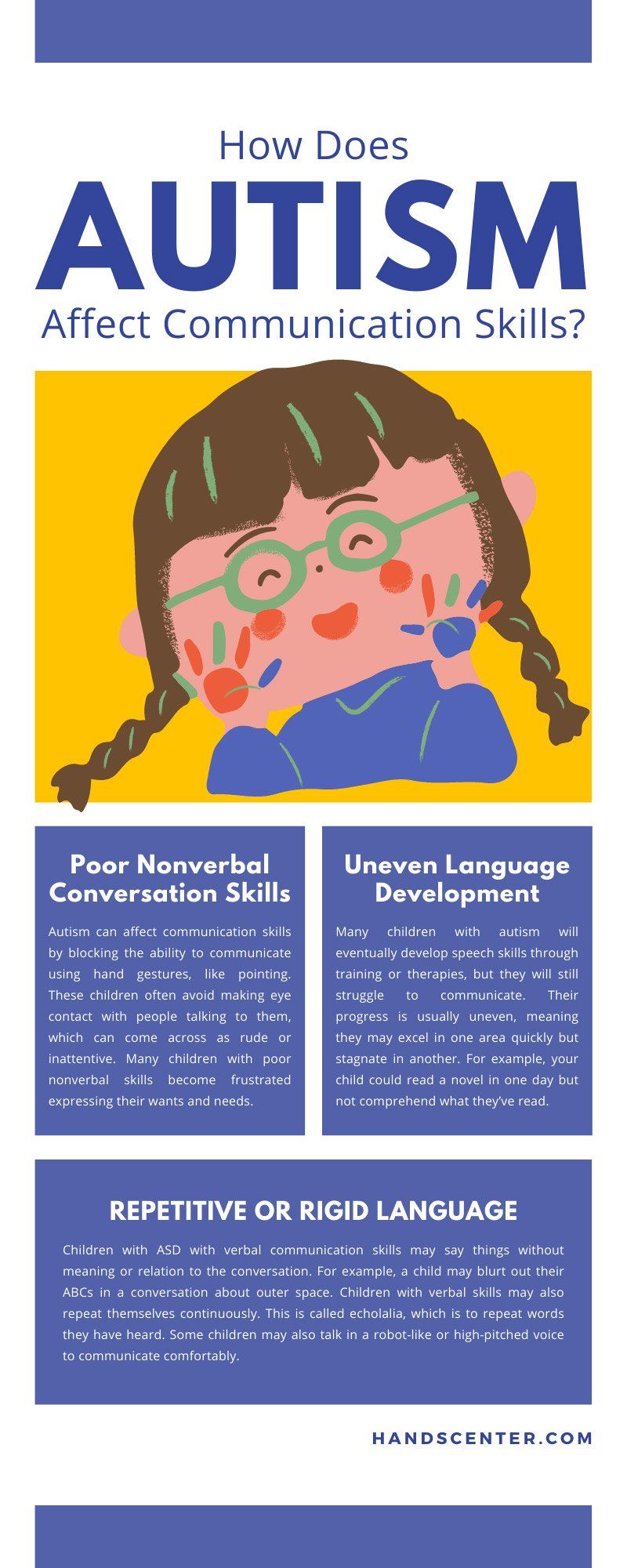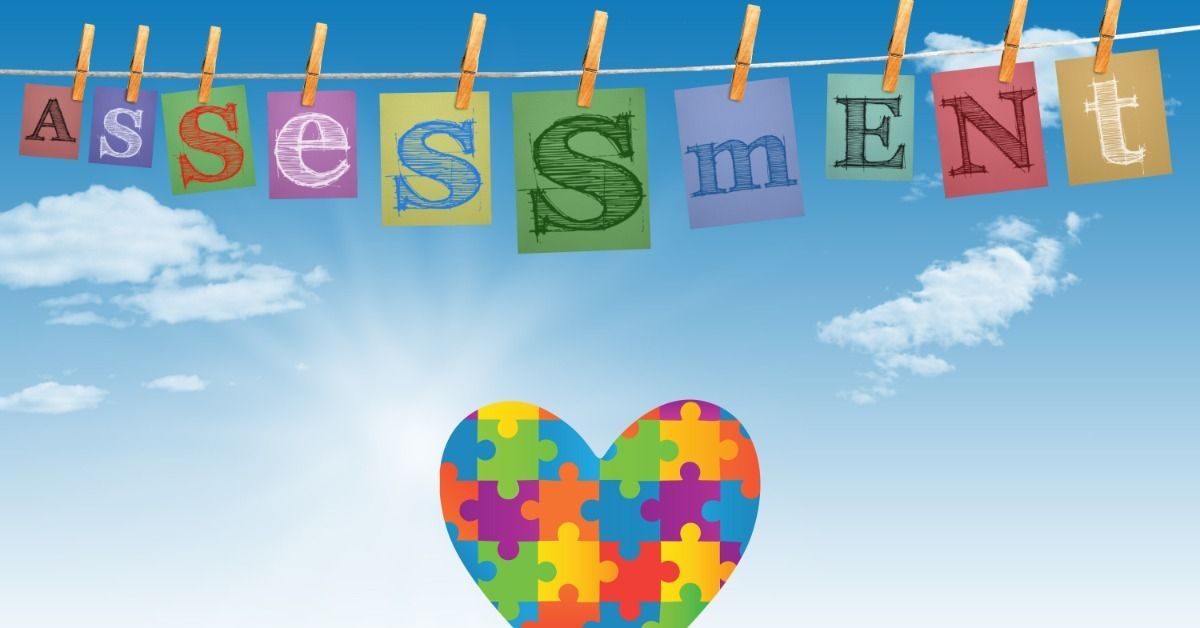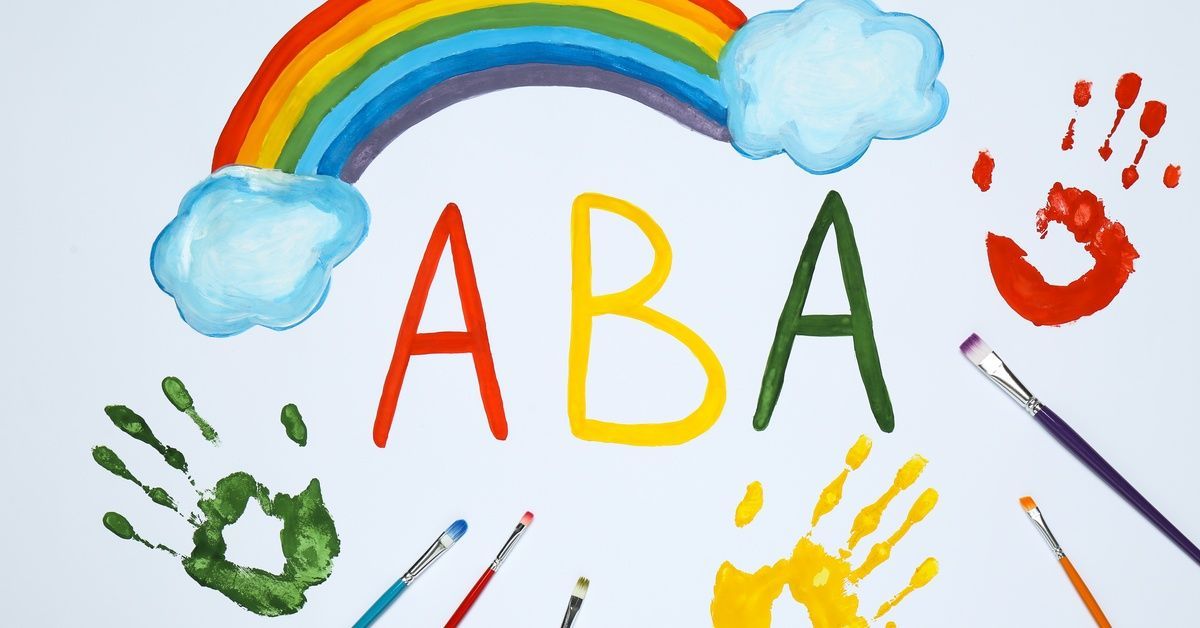How Does Autism Affect Communication Skills?
Communication skills are essential life skills. You can express your needs, wants, and emotions using your communication skills. Communicating effectively can help children learn social and behavioral skills and help them academically. Everyone uses different ways to communicate through body language, gestures, or sign language to help convey messages.
Children with autism have a range of communication abilities and skills. Some children with autism have great communication skills, whereas some find it challenging to communicate with others or develop language. Some children with autism need extra support to help mold their communication skills and get comfortable communicating with others. Keep reading to discover how autism affects communication skills and some techniques to help develop better communication skills with your child.
What Is Autism Spectrum Disorder?
Autism Spectrum Disorder (ASD) is a developmental disability that can cause behavioral, communication, and social challenges. However, autism is not a “one size fits all” disorder. ASD can affect people in many ways with varying symptoms.
The early signs of autism are typically behavioral signs in children ages 12-18 months and can affect anyone from any race, ethnic group, or socioeconomic class. However, according to the CDC, boys are three times more likely than girls to have autism, and about 1 in every 44 children in the United States has been diagnosed with autism spectrum disorder.
How Does ASD Affect Communication?
Children with autism often have difficulty communicating, developing language skills, and understanding what people are saying to them—that’s why it’s important to use literal language when talking to individuals with autism. Some children with autism have challenges communicating nonverbally through eye contact, facial expressions, and body language.
Some individuals with ASD may communicate verbally, while others can communicate verbally but have very limited speaking skills. Some children may have extensive vocabulary skills and can share great detail, while others cannot; everyone is unique.
Poor Nonverbal Conversation Skills
Autism can affect communication skills by blocking the ability to communicate using hand gestures, like pointing. These children often avoid making eye contact with people talking to them, which can come across as rude or inattentive. Many children with poor nonverbal skills become frustrated expressing their wants and needs. This might lead to behavioral issues and meltdowns.
Uneven Language Development
Many children with autism will eventually develop speech skills through training or therapies, but they will still struggle to communicate. Their progress is usually uneven, meaning they may excel in one area quickly but stagnate in another. For example, your child could read a novel in one day but not comprehend what they’ve read.
Children with uneven language development may not respond to what others are saying to them or may not respond to their name being called, and people often assume they have a hearing disability.
Repetitive or Rigid Language
Children with ASD with verbal communication skills may say things without meaning or relation to the conversation. For example, a child may blurt out their ABCs in a conversation about outer space. Children with verbal skills may also repeat themselves continuously. This is called echolalia, which is to repeat words they have heard. Some children may also talk in a robot-like or high-pitched voice to communicate comfortably.
Narrow Interests and Exceptional Abilities
Children with autism with a very specific interest may be able to communicate an entire monologue about the topic of interest. They may not be able to hold a full conversation, but they can tell you about their favorite hobby and every detail. Some children may have advanced abilities like mathematics, music, or other talents that they can discuss to showcase social and communication skills.
Ways Individuals With Autism Communicate
Even children with autism who are verbally fluent may have trouble getting their point across or communicating with their friends and family. There are unique ways of communicating; they often rely on body language and gestures to express their point. Below are four common ways individuals with autism communicate.
Non-verbal Communication
Many people with ASD develop nonverbal communication skills and techniques, including:
- Pictures
- Crying or other emotional sounds/gestures
- Physically directing someone to what they want
Learn more about helping non-verbal children communicate
here.
Speaking With No Eye Contact
As stated before, people with autism can communicate verbally but avoid making eye contact with you. Individuals with autism avoid making eye contact because it can cause them sensory overload. Some individuals would prefer to speak with their eyes shut to focus on communicating.
Constantly Switching Topics
Some individuals with autism have trouble “staying on topic” because their minds are moving quickly and processing information and many stimuli. These individuals may seem unfocused, but that’s not always true. Sometimes these individuals lose interest in what they’re talking about and want to move on to a different conversation.
Focusing on the Literal Meaning of Words
Individuals with autism typically have trouble understanding expressive languages or metaphors. These individuals may have difficulty understanding sarcasm or jokes because they focus on the keywords in their sentences. It’s always best to speak literally to convey your message.
Speech Therapy Exercises for Children With Autism
If your child with autism has issues communicating, you can try using speech therapy and behavioral exercises to help them cope with signs and symptoms as they age. You can help them with their speech and language development by taking 10 minutes a day to focus on these fun speech therapy exercises.
Present Your Child With Options
You can help your child communicate and teach independence by allowing them to make their own choices in everyday scenarios. For example, hold two shirts and classify them by color, “do you want to wear the green or yellow shirt?” It may take a while for your child to respond verbally or with gestures, but don’t give up!
Make Animal Noises
Children love animals and the noises they make. Help your child with ASD practice communication by mimicking animal noises using toys or interactive books with animal noises. They will try to copy your noises, thus forming a method of verbal communication.
Teach Them the Essentials
Teach your child essential words like “help,” stop,” “yes,” and “no” to help your child in the future. Children with autism often struggle to use words in new settings or contexts, so teaching your child the same words in different scenarios is very helpful.
Understanding how autism affects communication skills is crucial in this journey. Autism can often impact your child’s communication, making it challenging for them to express their feelings effectively.
Working on their communication skills will require time and patience before you start to see progress. By closely observing your child and understanding how and why autism affects communication skills, you can provide them with the most effective support possible.
If you’re looking for ways to help your child with their social, communication, and behavioral skills, HANDS Center for Autism provides ABA Therapy in North Carolina. Learn more about how ABA therapy can improve communication skills here. It’s always best to work on your child’s communication skills gradually. It will take time and patience to start to see progress. Watch your child closely and pick up on their ways of communicating—this will help you support them in the very best way possible.







